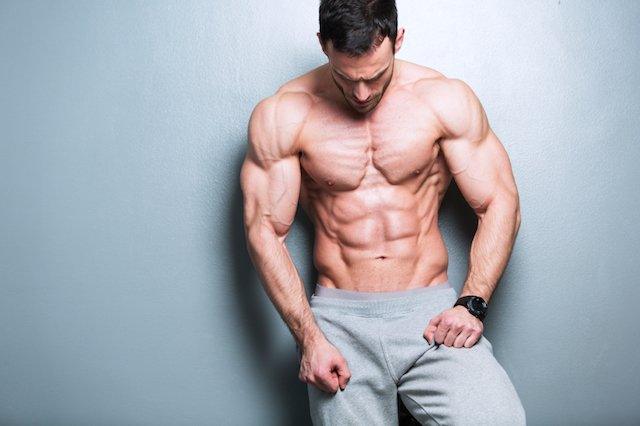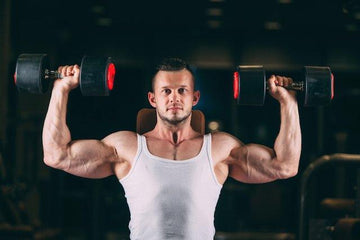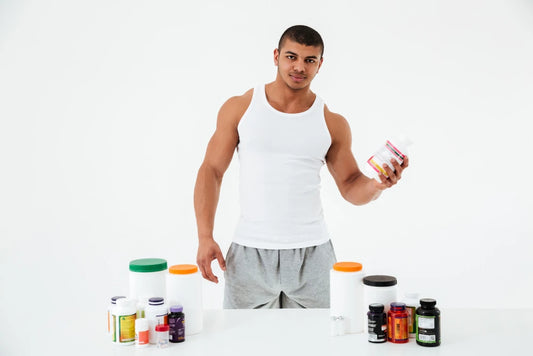

Should You Skip the Gym if You Don’t Have a Good Night’s Sleep?
Table of Contents
Should You Skip the Gym if You Don’t Have a Good Night’s Sleep?
by: Robbie Durand
Sleep is one of the most neglected aspects of health for most athletes. Not getting a good night’s sleep can not only affect performance but it can also impact your gains in the gym. Studies in volunteers who slept short versus long hours show that sleep reduction was accompanied by increased hunger, higher circulating concentrations of the appetite-stimulating hormone, ghrelin, and reduced concentrations of the anorexigenic hormone, leptin. Sleep deprivation is a recognized risk factor for metabolic syndromes, cardiovascular diseases, cancer, diabetes mellitus, and obesity.
Sleep Loss Screws Up Your Testosterone Levels
Plasma testosterone levels display circadian variation, peaking during sleep, and reaching a low point in the late afternoon. Various disorders of sleep including abnormalities of sleep quality, duration, circadian rhythm disruption, and sleep-disordered breathing may result in a reduction in testosterone levels. One cross-sectional study examined the different associations of age and sleep duration with sex steroid hormones and sexual activities in 531 Asian Chinese men aged between 29 and 72 years old. Age was a major determinant of sleep, sex steroid hormones, and sexual activities in men. Bio available testosterone, DHEAS, coital frequency, masturbation, and sleep duration declined with age. On the other hand, SHBG and estrogen increased with age. Sleep duration, independently of age, aerobic exercise, and body fat, was positively associated with testosterone and bioavailable testosterone, but not with DHEAS, estrogen, or any of the sexual activities studied. Men who masturbated had higher levels of both testosterone and bioavailable testosterone. DHEAS was significantly associated with coital frequency and desire for sex. The study showed that besides age, sleep duration was associated with androgen concentrations in men, and thus the evaluation of sleep hygiene may be beneficial in the management of men with low androgen concentrations.
Get Your Sleep for Optimal Testosterone Production
Another study examined 531 healthy men as testosterone levels among subjects, and they examined how the amount of sleep correlated with their testosterone level. The results again show that the men who slept more also had significantly higher testosterone levels. In fact the guys who slept for 4 hours had about 60% less testosterone in their serum, than the men who slept for 8 hours sleeping and male testosterone levels. If you want low testosterone levels, sleep less than four hours a night. In another study, twelve healthy men ages 64 to 74 years were examined. Three morning blood samples were pooled for the measurement of total and free testosterone. The main outcome measures were total sleep time and morning testosterone levels. Sleep time in the laboratory was correlated with the usual amount of nighttime sleep at home. The researchers reported that the amount of nighttime sleep measured was an independent predictor of the morning total and free testosterone levels of the subjects. The differences in the measured amount of nighttime sleep are associated with a significant part of the variability in the morning testosterone levels of healthy older men. If you want optimal testosterone levels, you should be sleeping more than eight hours a day.

Resistance Exercise Counteracts Sleep Muscle Loss
Since there are a ton of catabolic reactions that occur with sleep loss, researchers wanted to examine what would happen if your added resistance exercise to sleep restriction. Researchers had male rats were randomly allocated into different groups:
-control,
-Sleep Deprivation (for 96 hours),
-Resistance Training, and
-Resistance training + sleep deprivation.
Sleep deprivation resulted in muscle loss; however, when sleep deprivation was combined with resistance exercise, the reduction in muscle fiber loss was prevented. The levels of IGF-1 and testosterone were reduced in sleep deprivation animals, and the resistance exercise + sleep deprivation. group had higher levels of these hormones than the sleep deprivation group.
Corticosterone was increased in the sleep deprivation. Interestingly, the corticosterone responses were minimized in the resistance training + sleep deprivation group. Sleep deprivation induced weight loss, but this loss was minimized in the resistance exercise + sleep deprivation. group. The researchers concluded that sleep deprivation induced muscle loss, probably because of the increased corticosterone and catabolic signal. High-intensity resistance exercise performed before sleep deprivation was beneficial in containing muscle loss induced by sleep deprivation. It also minimized the catabolic signal and increased synthetic activity, thereby minimizing the body’s weight loss.
Goh VH, Tong TY. Sleep, sex steroid hormones, sexual activities, and aging in Asian men. J Androl. 2010 Mar-Apr;31(2):131-7. doi: 10.2164/jandrol.109.007856. Epub 2009 Aug 14. Penev PD. Association between sleep and morning testosterone levels in older men. Sleep. 2007 Apr;30(4):427-32.
Resistance training minimizes catabolic effects induced by sleep deprivation in rats. Marcos Mônico-Neto, Hanna Karen Moreira Antunes, Kil Sun Lee, Stuart M. Phillips, Sara Quaglia de Campos Giampá, Helton de Sá Souza, Murilo Dáttilo, Alessandra Medeiros, Wilson Max de Moraes, Sergio Tufik, Marco Túlio de Mello. Applied Physiology, Nutrition, and Metabolism, 2015, 40:1143-1150.
















